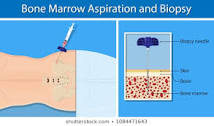
Diagnosed with Cancer? Your two greatest challenges are understanding cancer and understanding possible side effects from chemo and radiation. Knowledge is Power!
Learn about conventional, complementary, and integrative therapies.
Dealing with treatment side effects? Learn about evidence-based therapies to alleviate your symptoms.
Click the orange button to the right to learn more.
- You are here:
- Home »
- Blog »
- Multiple Myeloma »
- What is the Most Definitive Test to Diagnose Multiple Myeloma?
What is the Most Definitive Test to Diagnose Multiple Myeloma?

What is the most definitive test to diagnose multiple myeloma? What lab tests diagnose Multiple Myeloma? What blood tests indicate Multiple Myeloma?
“Hi, I just got diagnosed with Multiple Myeloma a month ago. I am going for my bone marrow biopsy in a few days- Maria”
Recommended Reading:
Multiple Myeloma Specialists- Why?
“You’ve been diagnosed with incurable cancer. You’re trying to manage your emotions and perhaps the emotions of those closest to you. Going to a hematologist/oncologist seems like the best thing to do, right? Studies show that hematologists/oncologists who specialize in multiple myeloma provide much better overall survival statistics than non-specialists...”
Multiple Myeloma Diagnostics- FISH, SPEP, CBC, FLC’s and Imaging
“As a long-term multiple myeloma (MM) survivor who has been scanned, nuked, stuck, pricked and bled more times than I care to remember, I can tell you that multiple myeloma diagnostics are critical because:
- MM is often misdiagnosed and
- MM is in all about the details.
What I mean by “all about the details” is that MM patients can have MM with few outward symptoms or MMers can have painful symptoms and yet have an early stage of even pre-multiple myeloma (SBP, MGUS, or SMM). The best way for you to learn what’s going on inside you is/are the MM diagnostic tests outlined below.
In order for you to be properly diagnosed for MM, your oncologist will examine your blood, your urine and your bones.
The most important thing for the MM patient to understand is that his/her stage at diagnosis is the single most important prognostic factor possible…”
What is Multiple Myeloma? Oncology has it backwards…
“What is multiple myeloma? In my experience the standard-of-care approach for multiple myeloma patients is misleading. Considering only FDA approved MM therapies represents short-term thinking. Newly diagnosed multiple myeloma patients are put at a huge disadvantage if they think short-term.
In my experience, MM is a blood cancer that combines potentially life-threatening symptomsand a series of life-threatening side effects. All at the same time. Let me explain…
The most common MM symptoms are:
- Myelosuppression (Infection, pneumonia, etc,)
- Renal Insufficiency (kidney failure)
- Bone Disease (bone damage, fractures, leading to death)
- Heart Failure (heart damage leading to death)
- Blood Clots (DVT, hyper-viscosity)
The most common side effects/complications caused by MM therapies are:
- Myelosuppression (Infection, pneumonia, etc,)
- Renal Insufficiency (kidney failure)
- Bone Disease (bone damage, fractures, leading to death)
- Heart Failure (heart damage leading to death)
- Blood Clots (DVT, hyper-viscosity)
The most common causes of death for multiple myeloma survivors are:
- Myelosuppression (Infection, pneumonia, etc,)
- Renal Insufficiency (kidney failure)
- Bone Disease (bone damage, fractures, leading to death)
- Heart Failure (heart damage leading to death)
- Blood Clots (DVT, hyper-viscosity)
These common causes of death for MM survivors can also be symptoms of MM as well as side effects caused by MM therapies…”

